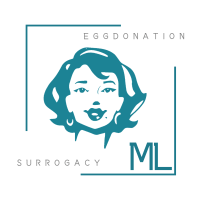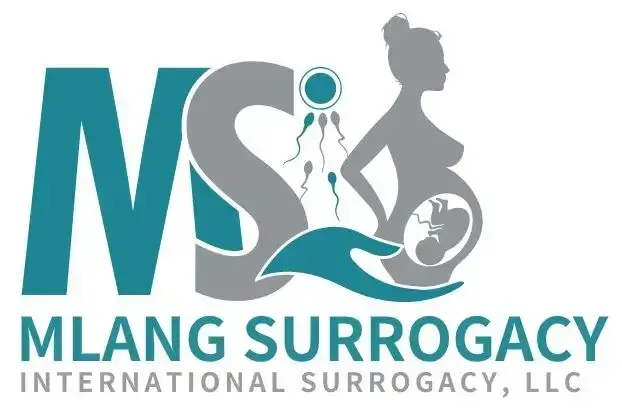SURROGACY
- Fully-screened;
- 80% are healthy students with prior uncomplicated pregnancies;
- No wait times to match!
$68500USD
The overall surrogacy costs is $68,500, including agency fees, surrogate fees, legal fees,insurance fees and screening & support for surrogate.
Use an affordable, low-cost Filipino surrogate mother
Parenthood through
surrogacy and egg donation in Canada
The Greatest difficulties of parenthood through surrogacy and egg donation in Canada is :
- It’s very difficult to find a surrogate mother in Canada, often taking 1 year or more to find a suitable one;
- Surrogacy and egg/sperm donation in Canada are legal, but there are many detailed and restrictive covenants. If you are not careful, you may have broken the law with out even knowing.
MLang Surrogacy is a professional egg donation and surrogacy agency based in Los Angeles,USA, and has successfully solved these issues through “using a foreign surrogate mother and having the transaction occurs outside Canada”.
This makes the process legal,compliant with Canadian law and easier for “international parents planning to travel to Canada for surrogacy” or “local Canadian parents to find a surrogate mother”.
MLang Surrogacy has fully-screened, healthy students with prior uncomplicated pregnancies who are waiting to be
surrogate mothers. There is no wait times to match!
Please check our surrogates database.
Contact Us
What types of parents does Canadian surrogacy and
egg donation help?
In fact, Canadian surrogacy and egg donation are family-building options for all different types of intended parents, and is especially friendly to LGBTQ+ parents and international parents.
Local heterosexual individuals & couples
Heterosexual individuals and couples may choose surrogacy and egg donation for a variety of reasons. including: infertility, medical diagnosis such as cancer, or a genetic defect or health condition,age and many other reasons.
Either with the intended mother’s own eggs-or donor eggs, embryos are created and transferred into a gestational surrogate.
International Surrogacy
Canadian law is very friendly to international surrogacy and has become an attractive location for foreign intended parents, and does not discriminate on the basis of marital status or sexual orientation. Its system of universal health care and also relieves intended parents of covering the cost of pregnancy care, birth, and neonatal care.
Under the AHRA, Canadian surrogates may legally accept payment for surrogacy from foreigners, provided that the transaction occurs outside Canada.
LGBTQ+
Canada was one of the first countries to approve same-sex marriage back in 2005.
As such, same-sex couples and opposite-sex couples share access to the same types of surrogacy and fertility services.
More Guide to LGBTQ+ Parenting:
- Becoming a Gay Parent;
- SPAR Program for HIV Parents;
- Lesbian Moms or Single Female Moms;
- LGBTQ+ Surrogacy Laws.
VIP for Chinese
and Chinese Canadians
- For people who want to immigrate from China to Canada; Surrogacy in Canada is certainly a good option. Compared to the U.S., Canadian surrogacy is a less expensive alternative. Then, your child will be delivered in Canada and automatically becomes a Canadian citizen.
- For Chinese Canadians;
If you are Chinese Canadians and want to become a parent, surrogacy or egg donation, you can count on our Chinese service team and enjoy VIP channel, or add our WeChat ID:18911951175.
5 Things
You Need to Know
About Surrogacy Law in Canada !!!
- Surrogacy is legal in Canada provided that it is altruistic (unpaid). The Assisted Human Reproduction Act of 2004 criminalizes commercial surrogacy. The validity of surrogacy contracts and the process for establishing parenthood of the child is governed by provincial law.
Quebec
fails to recognize any surrogacy contracts, whereas
British Columbia has the most permissive laws governing surrogacy.
- The Assisted Human Reproduction Act of 2004 makes it illegal to pay a surrogate mother, egg donor, or sperm donor. It establishes the minimum age for surrogate mothers at 21.
- The act allows for intended parents to reimburse a surrogate mother for out-of-pocket expenses incurred in relation to the surrogacy, including, maternity clothes, medications, and travel. A surrogate mother may be reimbursed for lost wages if a doctor declares in writing that
bed rest is medically necessary. Reimbursements must generally be backed by receipts, and may not result in financial gain for the mother.
- While it is illegal under the AHRA for Canadians to pay a surrogate mother, Canadian surrogates may legally accept payment for surrogacy from foreigners, provided that the transaction occurs outside Canada.
- Gender Selection: In Canada, embryo sex selection is prohibited by law (see below), except in cases of sex-linked disorder or disease. And so some of the more familiar sex-linked traits are hemophilia, red-green color blindness, congenital night blindness, some high blood pressure genes, Duchenne muscular dystrophy, and also Fragile X syndrome.
There is no law in Canada to prevent sex-selective abortion.
CANADIAN
SURROGACY COSTS
$68,500USD Excludes IVF costs
How much it cost to have a baby by Canadian surrogacy?
What are the benefits of surrogacy in CA compared to other countries?
These are the first questions we are asked by intended parents interested in growing their family through surrogacy.
Good news, Mlang Surrogacy & Egg Donation offer the low-cost surrogate mother to meet every type of intended parents ,the overall surrogacy costs is $68,500, including professional fees, surrogate fees, legal fees,insurance fees and screening & support for surrogate.
Agency Fees
The agency fee varies from agency to agency. At Mlang Surrogacy, your agency fees covers helping the intended parents to find a surrogate, matching, and managing your entire surrogacy process. We also help our Filipino surrogates with the following:
- Apply for Canadian student or work permits;
- Once the Filipino surrogate mothers arrive in Canada, we will arrange and manage their daily life, dormitory, studies and work.
Surrogate Fees
The cost of surrogate mother costs can be put into three (3) categories:
- The cost for the surrogate's base compensation;
- The surrogate's benefits;
- Plus additional costs incurred to help/support her and her family throughout her journey, such as: Visa application fees, tuition fees, and daily living and accommodation costs.
Surrogate mother costs make up about 51% of your total surrogacy costs.
Legal Fees
Legal costs includes your surrogate and yours legal representation, parent legal rights and trust account management costs.
Parent Legal Rights cover preparing pre- and post- birth orders, as well as additional work needed to have Intended Parents named on the birth certificate of the baby.
In Canadian, the validity of surrogacy contracts and the process for establishing parenthood of the child is governed by provincial law. British Columbia has the most permissive laws governing surrogacy.
Insurance Fees
Surrogacy insurance is an integral piece of the surrogacy process.
“Visitors to Canada insurance + provincial health coverage” option is perfect for our Filipino surrogate mothers who are on a Canadian work or student visa.
Also, Canadian insurance premiums are very low, approximately 20% -30% of U.S., and almost no co-payments and deductibles, which greatly reduces the cost of surrogacy for intended parents and saves them a great deal of money.
Process & Safely
of Surrogacy in Canada
Our Filipino surrogate mother is on a Canadian student or work visa, they have passed our full screening and various trainings as a surrogate mothers for 5-6 months prior to being matched. The intended parents can start a match directly with our surrogate without waiting!
The entire surrogacy process, from matching to embryo transfer and pregnancy blood test, usually
takes 2-3 months.
01: Matching
Finding and Matching with your surrogate mother is the first step in the gestational surrogacy process is one of the biggest ones.
A detailed profile of each surrogate mother will be shown in our surrogates database, Once a potential match has been identified, we will ask the intended parents to fill out their profile ,and then the surrogate's and the intended parents' profiles will be exchanged. If both parties are interested, we will facilitate an introductory video meet, allowing them an opportunity to get to know each other more deeply. If after that meet everyone says "YES!", you will be
officially be matched!
02: Sign agreement for services
The second concern of the intended parents is that their surrogacy funds safe and how the agency fees are paid.
Surrogacy Funds: Surrogacy client funds will be deposited into an attorney-client trust account or a bonded escrow company. Mlang Surrogacy doesn’t charge parents directly for anything. Once you’re signed on with Mlang Surrogacy, your total estimated surrogacy costs will be deposited into the trust account in 3 installments.
Agency Fees: Our agency fees will be payment in 2 installments, the first 50% is payable when the agency is signed, Paid the second 50% upon the surrogate has officially been medically cleared.
03:
Psychological &Medical Screening
If the match is successful the surrogate will be asked to complete a psychological evaluation and medical screening.The psychological evaluation is performed by a licensed mental health professional experienced in fertility counseling, Medical screening is done by the intended parents’
fertility doctor/clinic, this may include
a blood tests for tobacco, alcohol, drugs, hepatitis B, syphilis, AIDS, etc, also includes
uterine assessment tests,
such as pap smear, vaginal ultrasound, hysterosalpingography as well as other tests.
All testing is done to confirm that your candidate can be a qualified surrogate mother,and to determine the medication protocol to best prepare her uterus for implantation.
04:
Embryo Transfer & Pregnancy
Follow the doctor's orders, the surrogate mother usually arrives at the clinic on the same day or the day before for the embryo transfer. After the transfer she will remain on bed rest for approximately 24 to 72 hours and continue medication, and there is a 10 days wait to confirm a pregnancy by blood work and 6 weeks until a heartbeat confirmation by ultrasound.
6 weeks pregnant and the heartbeat test will be officially confirmed whether your surrogate mother has a successful pregnancy.
10 weeks of pregnancy, your surrogate mother will be transferred care from the IVF doctor to her OB/GYN. A new phase is beginning !!!
05:
Prenatal Testing & Surrogate’s daily life
Prenatal Testing:During pregnancy, your surrogate mother will complete prenatal testing on time according to the OB/GYN orders and share the results with you a timely manner, and all the costs will be covered by insurance.
Surrogate’s daily life: 80% of our surrogate mothers are students and will spend most of their time in regular school life, eating and living in the pregnancy&birth center at Mlang Surrogacy, with professional care provided by maternity nannies.
06:
Establish parental rights&Birth
Establish parental rights: At 20 weeks of the pregnancy, the intended parents will be working with their lawyer and local counsel to establish their parental rights. The requirements vary from province to province, and BC provinces may omit this step.
Birth: Surrogate delivery and your baby is here!!! It has been an emotional journey, and you're finally holding your baby in your arms, and inhaling that amazing new baby smell!
Travel Home: When the doctor releases your baby from the hospital, you'll be able to to take your baby home.
- Canadian parents usually travel home shortly after they are released – usually the same day or a few days – either by car or plane.
- International parents may stay in Canada for 3-4 weeks after baby's birth (sometimes longer) to finalize travel and obtain the baby's passport if needed.








